Cats have digestive tracts that are quite similar to those in humans or dogs, so they are not exempt from passing gas. But if a cat is farting more than you think is normal, it may be an indication of something else going on inside its body. Regular monitoring of your cat's normal gastrointestinal functions will help you be a better pet owner and know when your cat may need some veterinary attention.
Why Do Cats Fart?
When a cat eats food, it travels through the digestive tract so that it can be broken down to have nutrients absorbed, and then what isn't absorbed is eliminated from the body.
Food starts in the mouth, travels down the esophagus and into the stomach, enters the small intestine, goes to the large intestine, and then exits the body in the form of feces. In the gastrointestinal tract, excess gas may be produced from eating certain gas-producing foods, diseases, or parasite infestations. The gas will build up and eventually exits the body in the form of a fart. Swallowed air can also lead to farting or belching. If a cat doesn't get rid of the gas, pressure in the intestines causes discomfort.
Treatment of Cat Farts
If your cat is farting more than you feel is normal, it may have a digestive issue. Depending on the underlying reason for the gas, treatments will vary.
- Eradicate intestinal parasites: If your cat has intestinal parasites, then medication to kill the invaders will be prescribed by your veterinarian. Some parasites are easier to eradicate than others. Over-the-counter dewormers are available but since no medication kills all parasites, it's difficult to know if you are choosing the right one.
- Assess your cat's diet: Some cats have less gas on wet or dry food or do better with different ingredients than others. Diets that contain large amounts of common gas-producing foods, such as legumes, or cruciferous vegetables, may also be contributing reasons for a cat farting too much. Switching foods may help decrease farting in cats.
- Treat intestinal diseases: Many different intestinal disorders can cause gas. Dysbiosis, or an imbalance of the bacteria in the gut, is a common cause that is often corrected with probiotics. More serious diseases include cancers and inflammatory issues. Diarrhea, vomiting, and/or weight loss are usually evident alongside the flatulence in these cases, at least as the disease progresses. Medications may be prescribed to combat the disease and its symptoms, surgery may be recommended, and special diets may be discussed to improve the health of the intestinal tract.
Diagnosing the Problem
One of the first things you should do if you think your cat has too much gas is to make an appointment with your veterinarian. Bring a fecal sample in with you to be checked for parasites. The fecal exam will look for parasites such as coccidia, roundworms, and hookworms that could be causing excessive gas. This is a simple and routine test that can also be done every year, especially if your cat goes outdoors.
If parasites are not the reason for excessive farting, your cat may have an intestinal disease, particularly if additional symptoms are present. A full physical examination will include your veterinarian feeling the intestines to see if anything appears to be abnormal. X-rays, ultrasounds, blood tests, biopsies, and other diagnostics may be necessary. Exploratory surgery is sometimes the only way to retrieve appropriate samples and visualize the intestinal tract once other methods of diagnosis have been exhausted.
If your cat has a clean bill of health, then you should look at its diet. Ask yourself: Has there been a recent dietary change or indiscretion? Did you change your cat's food or treats? Did your cat get into something it shouldn't have eaten? Any of these things may be causing excessive gas. If your cat gets different types of foods regularly, consider keeping a food journal to track the relationship between diet and your cat's gas.
How to Prevent Cat Farts
The best way to keep your cat's farts to a minimum is to feed a quality cat food that agrees with your cat. Additionally, you should minimize dietary changes. Regular administration of probiotics may also help. Avoid feeding items containing lactose, such as milk, and take your cat in for regular check-ups with your veterinarian to catch any intestinal problems early. Regular administration of intestinal parasite preventatives is also recommended in many cases.
- Why is my pregnant cat farting so much?
Pregnant cats may fart a bit more than their not-pregnant counterparts, but it's also possible that your cat has worms—after all, it likely left the house to get pregnant and therefore could have picked up any number of illnesses. We suggest you call your vet to discuss; a stool sample might reveal the answer.
Why is my cat farting when it's afraid?Cats tend to fart when they're anxious or frightened. It's a normal, albeit smelly, behavior.
What kind of food is good for a farting cat?Farting cats do best with meat-based wet food. Often, grain-based foods can cause gassiness.
If you suspect your pet is sick, call your vet immediately. For health-related questions, always consult your veterinarian, as they have examined your pet, know the pet's health history, and can make the best recommendations for your pet.Related Article
 litter-box-training-and-issues
litter-box-training-and-issues17 Clever Ways to Hide Your Cat's Litter Box
There are several solutions to hide a litter box. By making a DIY litter box enclosure, you can pre
 cat-basic-training
cat-basic-trainingWhy Is My Cat Pooping Outside The Litter Box? Potential Causes and What To Do About It
Why is my cat pooping outside the litter box? Cats poop in the house for several reasons, including
 cat-reproductive-health
cat-reproductive-healthHow Long Are Cats in Heat?
On average, a female cat is in heat for four to seven days. However, her heat may last as short as
 cat-treatments
cat-treatmentsLuxating Patella in Cats
Luxating patella, the technical term for a kneecap popping out of place, creates instability in a c
 cat-symptoms
cat-symptoms18 Warning Signs That Your Cat Is Crying for Help
It's important to recognize the warning signs that your cat is crying for help. Sometimes, it m
 cat-diseases-and-disorders
cat-diseases-and-disordersHeart Disease in Cats
While heart disease is considered more common in humans and pets like dogs, cats are still suscepti
 cat-diseases-and-disorders
cat-diseases-and-disordersKitten Diarrhea: When to See the Vet
Kitten diarrhea is a fairly common problem with many potential causes. If your kitten has loose or
 short-haired-cat-breeds
short-haired-cat-breedsToyger: Cat Breed Profile, Characteristics & Care
The toyger (toy tiger) is a medium-sized, tiger-spotted, exceptionally rare short-haired cat that w
About FleaFree Feline
We are a premier digital platform committed to delivering high-quality content to our readers. Our mission is to provide accurate, reliable, and engaging information that adds value to our audience's daily lives.
Our team consists of experienced content creators and subject matter experts who uphold the highest standards of professionalism. In an era of information overload, we curate content with care, ensuring our users receive only the most relevant and trustworthy information.
Beyond just reporting facts, we focus on depth and context. Through expert analysis, comprehensive research, and clear presentation, we help our audience gain meaningful insights and make informed decisions.
We take pride in being a trusted information source for our growing community of readers. Our user-first approach means we continuously adapt to provide content that meets our audience's evolving needs and interests.
Innovation and excellence drive everything we do. We're committed to improving our platform and services to deliver the best possible experience for our users.

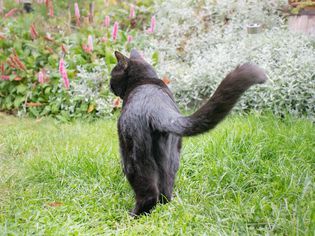

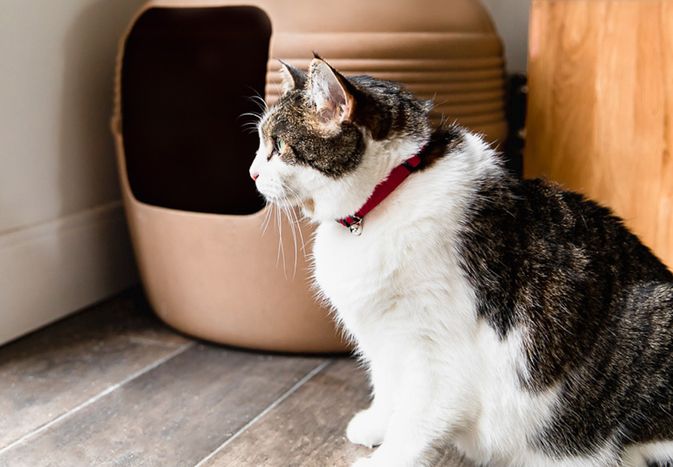
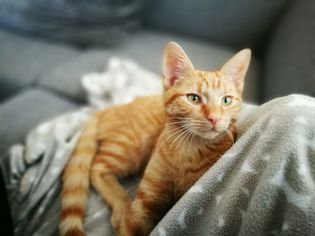
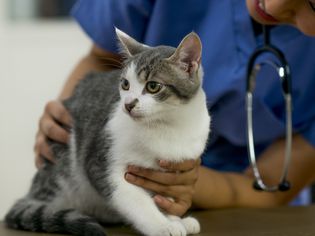
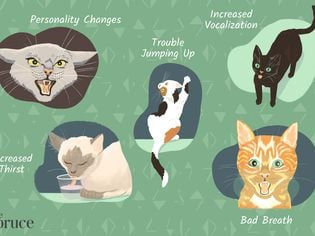
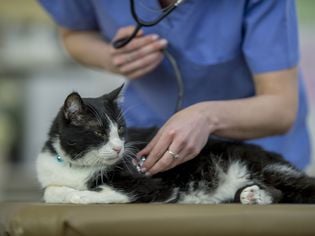
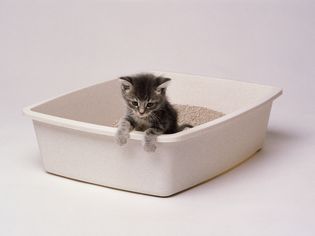
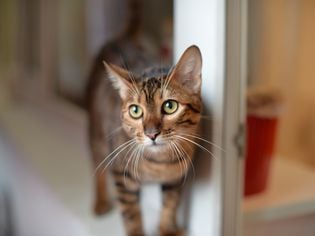
Comments on " What to Do If Your Cat Is Farting" :